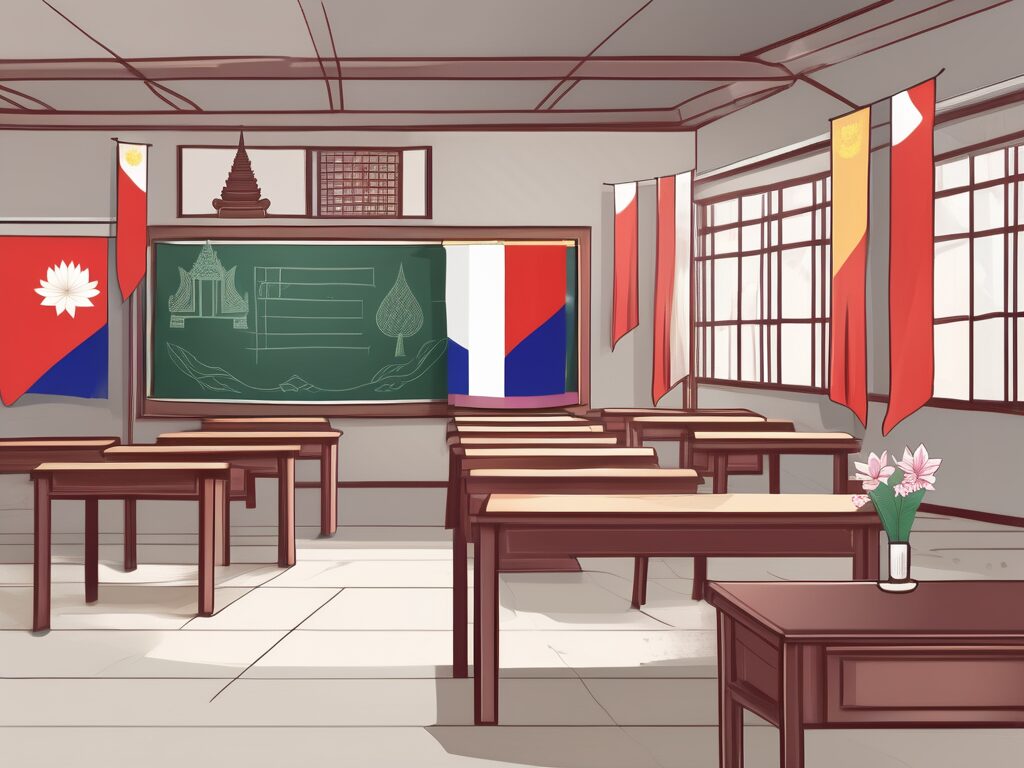Thailand, known for its rich cultural heritage and warm hospitality, is a fascinating country that attracts people from all over the world. However, for teachers with a Master’s in Education, navigating the Thai education system can be a challenging task due to cultural barriers. This article will delve into five examples of these cultural barriers, offering insights and advice on how to overcome them.
1. Language Barrier
The first and perhaps the most obvious barrier is the language. Thai is the national language and is used in all levels of education. While English is taught in schools, the proficiency level varies greatly. For a teacher with a Master’s in Education, this can pose a significant challenge, especially if they are not fluent in Thai.
However, this barrier is not insurmountable. Many teachers have found success by learning basic Thai phrases and using visual aids and gestures to facilitate communication. Additionally, there are numerous language exchange programmes and online resources available that can help teachers improve their Thai language skills.
2. Hierarchical Society
Thai society is highly hierarchical, and this is reflected in its education system. Teachers are accorded a high level of respect, and students are expected to show deference. This can create a barrier for teachers used to a more egalitarian approach to education.
Understanding and respecting this hierarchy is crucial. Teachers should be aware that challenging or questioning a student in front of their peers may cause them to lose face, which is a significant cultural faux pas in Thailand. Instead, teachers should aim to foster a supportive and respectful learning environment.
3. Differences in Learning Styles
Thai students typically favour rote learning and memorisation, which can be a stark contrast to the more interactive and discussion-based learning styles common in Western education. This can create a disconnect between the teacher’s teaching style and the students’ learning style.
Teachers should strive to incorporate elements of rote learning into their teaching while also introducing more interactive teaching methods. This can help bridge the gap and cater to a broader range of learning styles.
4. Collectivist Culture
Thailand’s collectivist culture places a high value on group harmony and consensus. In the classroom, this can manifest as students being reluctant to express individual opinions or challenge the group consensus.
Teachers can address this by creating a safe and inclusive classroom environment where all opinions are valued. Group work and collaborative projects can also be effective ways to encourage individual expression within the context of the group.
5. Religious Beliefs
Religion, particularly Buddhism, plays a significant role in Thai culture and education. Teachers should be aware of and respect religious customs and holidays. For example, it is customary for students to wai (a traditional Thai greeting) their teachers at the start of the day, which is a sign of respect and gratitude.
Understanding and respecting these customs can help teachers build rapport with their students and foster a positive learning environment. However, it’s also important for teachers to maintain a balance and ensure that religious customs do not interfere with the educational objectives of the class.
Conclusion
Teaching in Thailand can be a rewarding experience, offering the opportunity to immerse oneself in a rich and vibrant culture. However, cultural barriers can pose challenges. By understanding and respecting these cultural differences, teachers can create a positive and effective learning environment for their students.
Remember, the key to overcoming these barriers is flexibility, patience, and a willingness to learn and adapt. With these qualities, teachers can not only navigate the Thai education system successfully but also enrich their own teaching practice and personal growth.
Enhance Your Teaching Career in Thailand with iQTS
As you navigate the cultural intricacies of the Thai education system, consider elevating your teaching qualifications with The IQTS at UWE. Our International Qualified Teacher Status (iQTS) Programme is designed to help educators like you overcome common barriers, such as stringent qualification requirements and feelings of professional isolation. With iQTS, you can expect a significant boost in interview callbacks, promotion rates, and salary, while also gaining a deeper understanding of international curricula. Join a thriving community of professionals and make your next step towards a fulfilling international teaching career. Make Your Next Step today and start your journey with iQTS.

